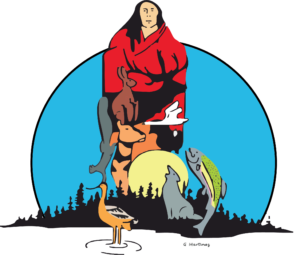Search / Filter Grants
Grant Status
Funding Agencies
Funding Types
Eligible Entities
Coastal Habitat Restoration and Resilience Grants for Tribes and Underserved Communities
Due Date: December 19, 2023 | Award: $3,000,000
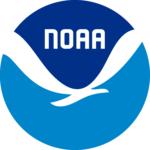 $45 million in funding is available under the Bipartisan Infrastructure Law and Inflation Reduction Act for projects that will advance the coastal habitat restoration and climate resilience priorities of tribes and underserved communities.
$45 million in funding is available under the Bipartisan Infrastructure Law and Inflation Reduction Act for projects that will advance the coastal habitat restoration and climate resilience priorities of tribes and underserved communities.
Through this funding, NOAA will help support community-driven habitat restoration and build the capacity of tribes and underserved communities to more fully participate in restoration activities.
Conservation Law Enforcement Officer Funding (BIA)
Due Date: January 16, 2024 | Award: $47,000
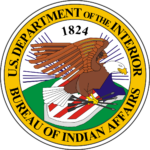 The Branch of Fisheries, Wildlife and Recreation (BFWR) provides competitive funding to federally-recognized Tribes to hire conservation law enforcement officers (CLEOs) to protect Tribal natural resources.
The Branch of Fisheries, Wildlife and Recreation (BFWR) provides competitive funding to federally-recognized Tribes to hire conservation law enforcement officers (CLEOs) to protect Tribal natural resources.
National Coastal Resilience Fund
Due Date: April 10, 2024 | Award: $10,000,000
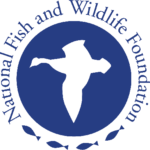 NFWF will make investments in planning, design, and implementation of natural and nature-based solutions. The goal is to enhance protection for coastal communities from the impacts of storms, floods, and other natural coastal hazards and to improve habitats for fish and wildlife. NFWF will award approximately $140 million in grants to create and restore natural systems to increase protection for communities from current and future coastal hazards and improve habitats for fish and wildlife species.
NFWF will make investments in planning, design, and implementation of natural and nature-based solutions. The goal is to enhance protection for coastal communities from the impacts of storms, floods, and other natural coastal hazards and to improve habitats for fish and wildlife. NFWF will award approximately $140 million in grants to create and restore natural systems to increase protection for communities from current and future coastal hazards and improve habitats for fish and wildlife species.
Network for Landscape Conservation: Catalyst Fund
Due Date: May 3, 2024 | Award: $
 The Catalyst Fund strives to accelerate the pace and practice of collaborative landscape conservation and stewardship across the United States by investing in Landscape Partnerships. The Fund couples financial support (through a competitive grant program) with capacity[1]building support (through in-depth Peer Learning) to catalyze Partnership efforts to achieve long-term conservation and stewardship goals. A portion of the Fund is reserved specifically to advance Tribal-led Partnerships. MATCH IS WAIVED FOR TRIBAL-LED PARTNERSHIPS!
The Catalyst Fund strives to accelerate the pace and practice of collaborative landscape conservation and stewardship across the United States by investing in Landscape Partnerships. The Fund couples financial support (through a competitive grant program) with capacity[1]building support (through in-depth Peer Learning) to catalyze Partnership efforts to achieve long-term conservation and stewardship goals. A portion of the Fund is reserved specifically to advance Tribal-led Partnerships. MATCH IS WAIVED FOR TRIBAL-LED PARTNERSHIPS!
Implementation of the Quagga and Zebra Mussel Action Plan (QZAP) in the Western United States
Due Date: May 15, 2024 | Award: $600,000
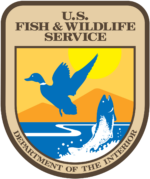 Quagga and Zebra Mussels are aquatic invasive species that are rapidly expanding their range in the Western United States. Popular recreational reservoirs on or connected to the lower Colorado River are one major source of invasive mussels, which are easily transported via trailered watercraft to areas that have not yet been invaded. This Request For Proposals (RFP) will fund proposals in the listed principal areas towards the fulfillment of the top priorities in the Quagga/Zebra Mussel Action Plan for Western U.S. Waters (QZAP 2.0) and will be limited to states within the boundaries of the Western Regional Panel within the United States, not including Canada and Mexico (see map).
Quagga and Zebra Mussels are aquatic invasive species that are rapidly expanding their range in the Western United States. Popular recreational reservoirs on or connected to the lower Colorado River are one major source of invasive mussels, which are easily transported via trailered watercraft to areas that have not yet been invaded. This Request For Proposals (RFP) will fund proposals in the listed principal areas towards the fulfillment of the top priorities in the Quagga/Zebra Mussel Action Plan for Western U.S. Waters (QZAP 2.0) and will be limited to states within the boundaries of the Western Regional Panel within the United States, not including Canada and Mexico (see map).
Advancing Tribal Nature-Based Solution Grant (First Nations Development Institute)
Due Date: May 22, 2024 | Award: $200,000

Tribes and Native communities are on the front lines of climate change, experiencing extreme weather, rising sea levels, extended drought, warming temperatures, and melting permafrost… To support climate action that addresses adaptation and disaster preparation, First Nations Development Institute established the “Advancing Tribal Nature-Based Solutions” project – designed to provide tribes and Native nonprofits with resources to support climate action that addresses adaptation and disaster preparation (e.g., wildfires, flooding, drought) through the application of nature-based solutions based on Native knowledge.
National Environmental Information Exchange Network Grant Program
Due Date: May 23, 2024 | Award: $500,000

The EPA Exchange Network Grant Program is soliciting project applications to support the Environmental Information Exchange Network (EN) to:
-
- Facilitate sharing of environmental data, especially through shared and reusable services.
-
- Reduce burden and avoid costs for co-regulators and the regulated community.
-
- Streamline data collection and exchanges to improve its timeliness for decision making.
-
- Increase the quality and access to environmental data through discovery, publishing, outbound and analytical services so it is more useful to environmental managers.
-
- Increase data and IT management capabilities needed to fully participate in the EN.
Invasive Species Eradication Funding Opportunity (USFWS)
Due Date: May 27, 2024 | Award: $1,000,000
 USFWS invites proposals to support the eradication of a newly introduced or established species in terrestrial or aquatic habitats of the United States, including the U.S. territories (aquatic habitats include freshwater, wetland, riparian, estuarian, and marine). While preference will be given to proposals that result in eradication of invasive species, research proposals that advance research that increases the effectiveness and availability of eradication tools will be considered
USFWS invites proposals to support the eradication of a newly introduced or established species in terrestrial or aquatic habitats of the United States, including the U.S. territories (aquatic habitats include freshwater, wetland, riparian, estuarian, and marine). While preference will be given to proposals that result in eradication of invasive species, research proposals that advance research that increases the effectiveness and availability of eradication tools will be considered
Tribal Nations Wild Cervid CWD Funding Opportunity
Due Date: June 10, 2024 | Award: $100,000
Federally recognized Native American Tribal governments and organizations are eligible to submit funding proposals to control and prevent CWD in farmed and wild cervids through the development and/or implementation of CWD surveillance, testing, management, and response activities including the indemnification of farmed cervids. There is a Tribal set-aside of $500,000. Note: there is another opportunity open to more applicants – Tribes should apply for both.
Wild Cervid CWD Funding Opportunity (National)
Due Date: June 10, 2024 | Award: $250,000
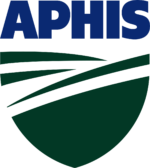 APHIS anticipates awarding around $5.5 million to control and prevent chronic wasting disease (CWD) in wild cervids. Funded projects will allow recipients to further develop and carry out CWD management and response activities in line with the following priorities:
APHIS anticipates awarding around $5.5 million to control and prevent chronic wasting disease (CWD) in wild cervids. Funded projects will allow recipients to further develop and carry out CWD management and response activities in line with the following priorities:
- Improving CWD management of affected wild cervid populations
- Improving CWD management of affected areas or premises
- Conducting additional research on amplification assays and other new test methods
- Conduct research on developing and/or applying predictive genetics for wild cervids
- Developing and/or delivering educational outreach materials or programs
